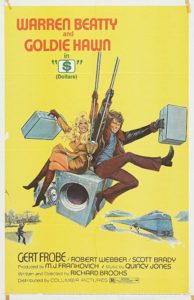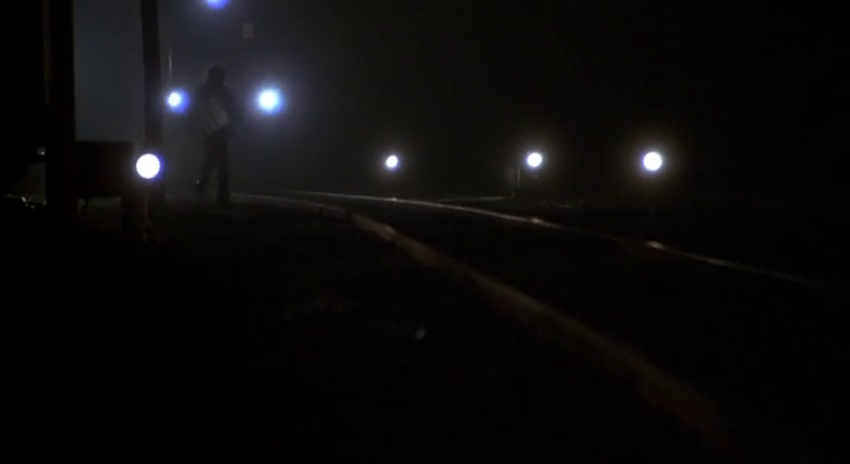|

Synopsis:
A security expert (Warren Beatty) working for a German bank collaborates with a call girl (Goldie Hawn) to determine which safety deposit boxes contain dirty money, then engineers an elaborate heist. However, when the burgled cons (Scott Brady, Robert Webber and Arthur Brauss) learn they’ve been duped, they seek immediate revenge.
|
|
Genres, Themes, Actors, and Directors:
- Goldie Hawn Films
- Heists
- Richard Brooks Films
- Thieves and Criminals
- Warren Beatty Films
Review:
Richard Brooks wrote and directed this fast-paced long-con flick, set in Hamburg, Germany, and notable for having a single symbol as its title (it’s come to be referred to as Dollars). While it’s somewhat challenging to determine what’s happening during the first portion of the film, we eventually figure out that Beatty and Hawn are working together on an elaborate heist — though once they’re (barely) successful, their troubles have only just begun. (Then again, what else would you expect when you steal from thieves?) Unfortunately, this film should be a lot more fun than it is: it’s all machinations and little genuine involvement or narrative, with only the basics of a gotcha plot emerging. Hawn’s quirky character is poorly conceived, and while Beatty is appropriately clever and quick on his feet, he’s a slippery, unknowable sort. Fans of well-directed heists and chase sequences will want to check this one out, but it’s not must-see viewing for all film fanatics.
Redeeming Qualities and Moments:
- Good use of authentic location settings in Hamburg


- Quincy Jones’ soundtrack
Must See?
No, though fans of heist flicks will probably want to check it out.
Links:
|
2 thoughts on “$ (1971)”
First viewing. Not must-see, and in complete agreement with the sharp assessment given.
On top of what it already states, this is a cold / clinical film (in itself, not unusual for a Richard Brooks movie) and it’s also a rather frustrating experience for the viewer.
Parts of it are clever (i.e., the premise of stealing what is already dirty money, as well as how Beatty’s theft actually plays out in the vault). And it’s not a problem that some of the film’s early ‘confusion’ is only sorted out much later on.
But other aspects seem sloppy. I don’t think it’s that the film “should be a lot more fun” as much as something with such an intricate design overall should be a lot more engaging – and, to me, those are two different things. As noted, part of the problem is the insufficient way Beatty and Hawn’s characters are conceived – but that flaw is connected to a certain laziness in the script’s structure.
Worst of all in that regard is the film’s final, almost dialogue-free half-hour. It consists of a wild chase sequence – which starts out with promise but ultimately builds to an awkward pay-off that is laughable in its extreme.
A good film that I first saw on UK TV in the early ’80s; decent performances and pacy direction.
However, no real cultural or historical significance so not must see.